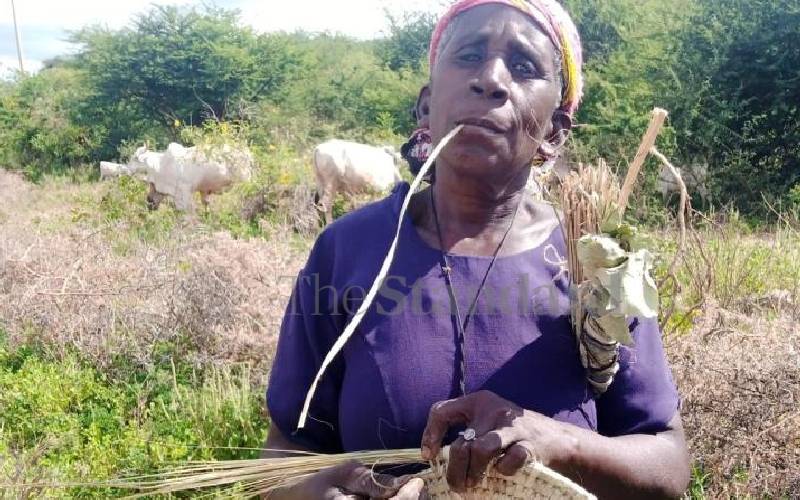×
The Standard e-Paper
Fearless, Trusted News

Martha Kaguurukia weaving a traditional basket at Nkarini in Tharaka South, Tharaka Nithi County. [Phares Mutembei, Standard]
From grandmothers to young girls in areas where there are assorted grasses for making the baskets, proceeds from the items are helping families supplement their income for a better living.